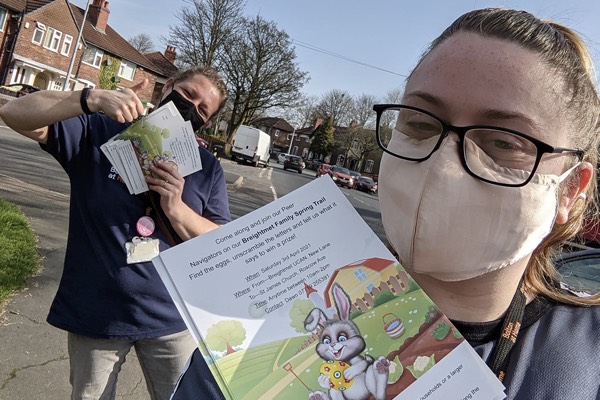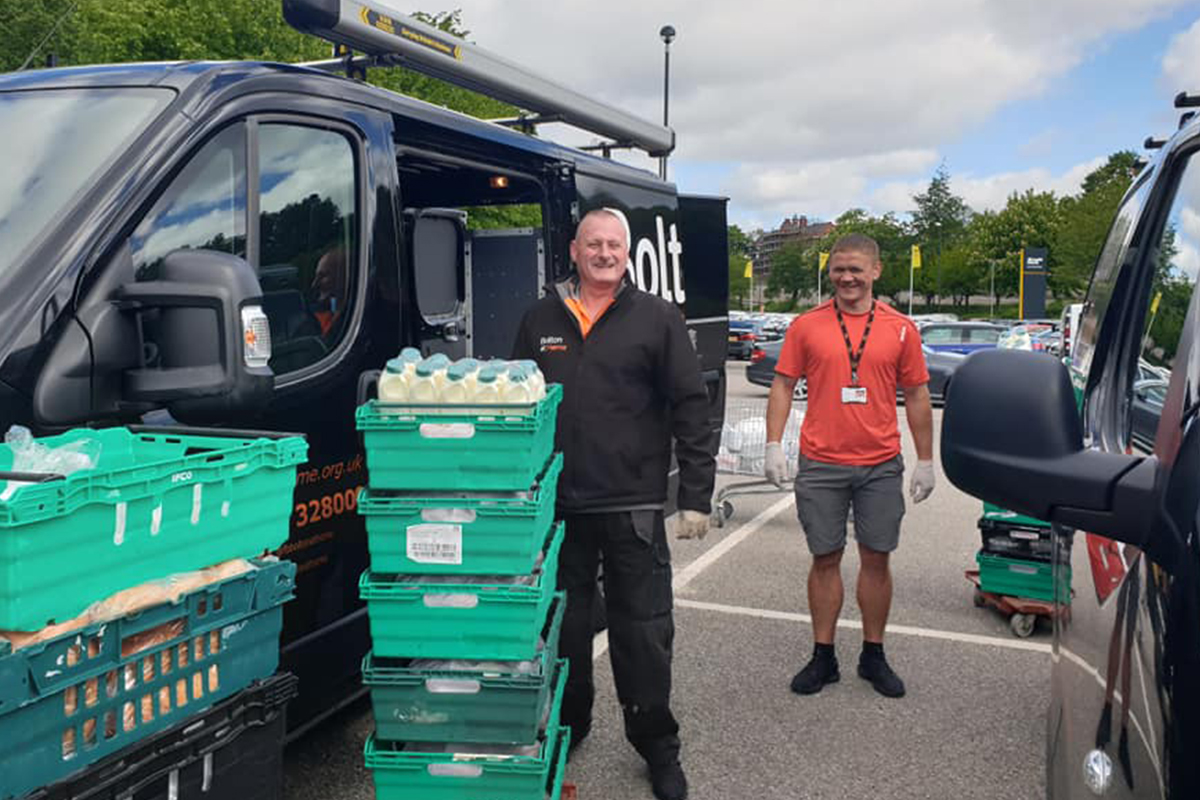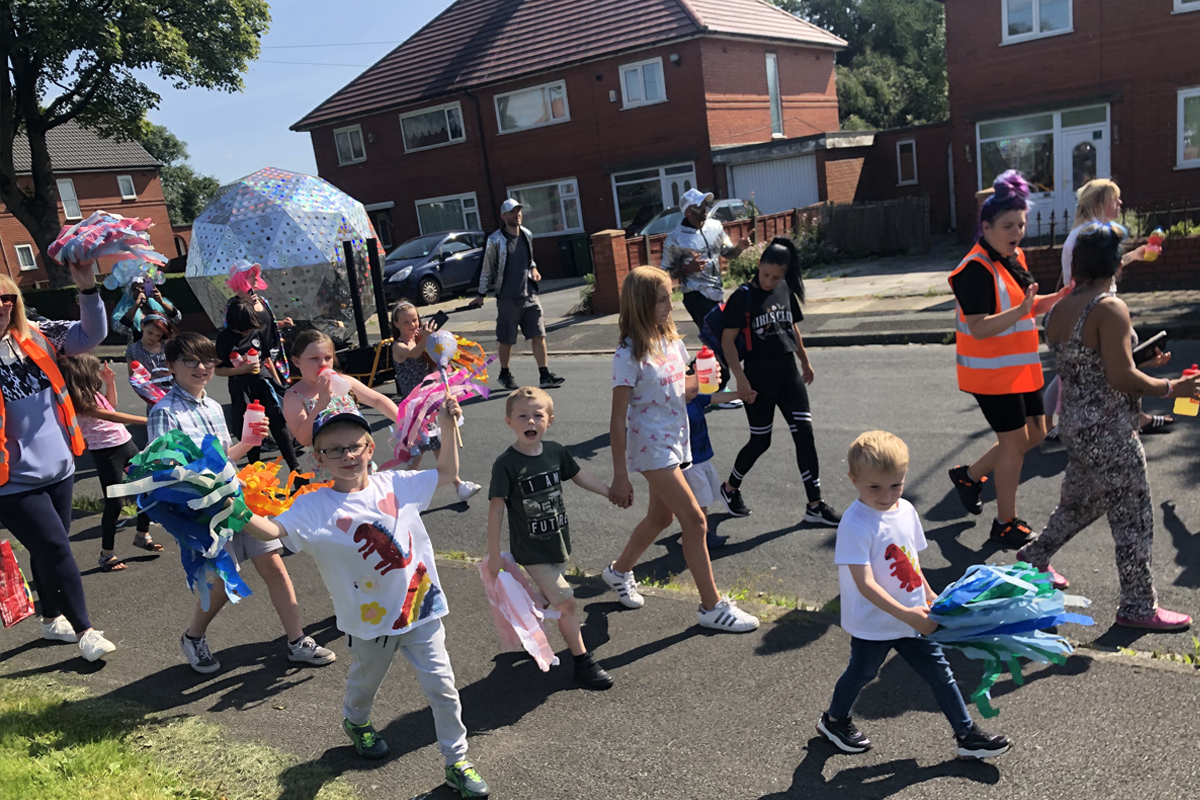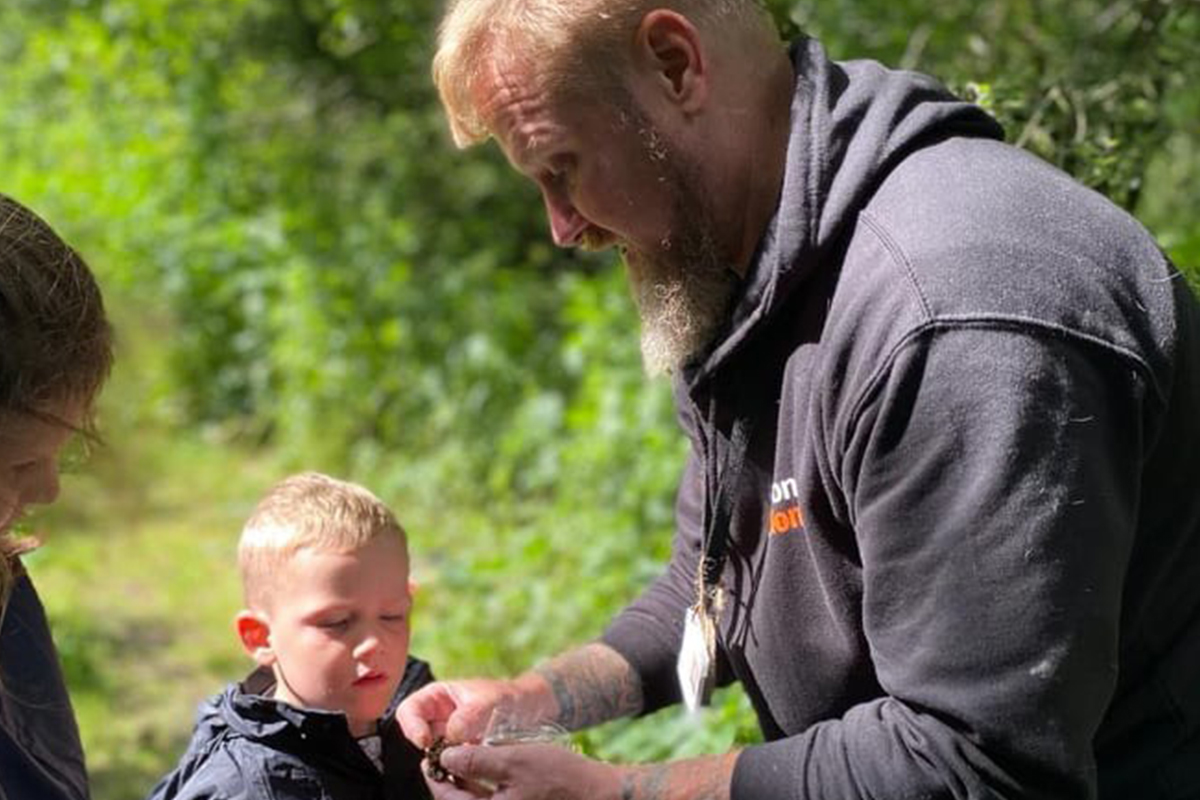Case Study
Exploring the social impact of Bolton at Home’s Community Development Officers

Bolton At Home are a social housing provider, owning, managing and maintaining more than 18,000 homes across the borough of Bolton.
But their work goes far beyond bricks and mortar.

Capturing the Impact
As part of Bolton At Home’s Community Investment Team, the Community Development Officers work with residents and community groups to address issues of social isolation, poverty, community cohesion, environment, and health and wellbeing.
The officers have a deep understanding of the communities they serve, and their work consistently creates long-lasting positive changes for these communities. However, recording this evidence in a meaningful way has proved challenging, so they enlisted the help of Turn Up The Value. I was asked to facilitate three workshops, supporting the team to understand, evidence and communicate the difference they make.

Workshop One – Exploring the Values
The team work to a set of professional community development values, as outlined in the UK National Occupational Standards. Our first session was spent exploring how these values translate to real-life actions and interactions between Bolton At Home workers and customers.
As well as connecting and celebrating the occasions where the values became evident, we looked for ‘values gaps’, where it was harder to see how these ideals were being implemented.
This led to some interesting debates – particularly when discussing the value of ‘social justice’, which means different things to different people. We identified several practical solutions to help the team manage and mediate instances where personal, professional and organisational values may not align.
“The service exceeded expectations…Karen was able
to get to the true purpose and intention behind the work and
offered a number of options on how we could get to where we needed to be.”

Workshop Two – Impact Mapping for a Theory Of Change
Impact maps are a process devised by the New Economics Foundation and used by the Social Audit Network as a way of identifying an organisation’s outputs, outcomes and impact.
We began by mapping out all stakeholders affected by the work of the community development team, including customers, community groups, BaH departments, funders, suppliers, and partner organisations.
We then identified three key objectives to define the team’s purpose and role within the community and wider Bolton At Home organisation.
We followed this by pinpointing the outputs and desired outcomes the team was aiming for, and the impact that each of these outcomes would have if we achieved them. This work was informed and clarified by the findings of the value exploration in session one.
“Karen’s energy really drove the sessions and made them enjoyable…as a team we were supported and challenged and came away with a new sense of purpose and excitement.”

Workshop Three – Evidencing the Impact
In our concluding workshop, we started with an overview of the opportunities and tools used to gather data about the team’s impact.
We then spent our time working on the team’s case study writing technique. Case studies are the main method used by Bolton At Home’s Community Development Team to evidence their impact. We identified what makes a good (or bad) case study, and then critiqued examples according to these criteria.
We then looked at how case studies could feed into a wider Project Report to provide a more comprehensive and detailed overview of the team’s impact. These separate Project Reports could then be fed into an annual Impact Report, to celebrate and evidence the work of the team, and then share it with stakeholders to raise the profile of Community Development efforts at Bolton At Home.
.
“I would recommend working with Karen, she guided us through the planning and exploration stage effectively, delivered great, engaging sessions and has left us with a lot of food for thought, clear actions to get us to where we want to be and offered lots of real examples from other organisations and processes throughout which were inspiring and motivating.”
What an amazing team
It was a pleasure to work with this tireless and committed team of community builders, and I can’t wait to see how their new impact infrastructure lifts their work to new heights.
